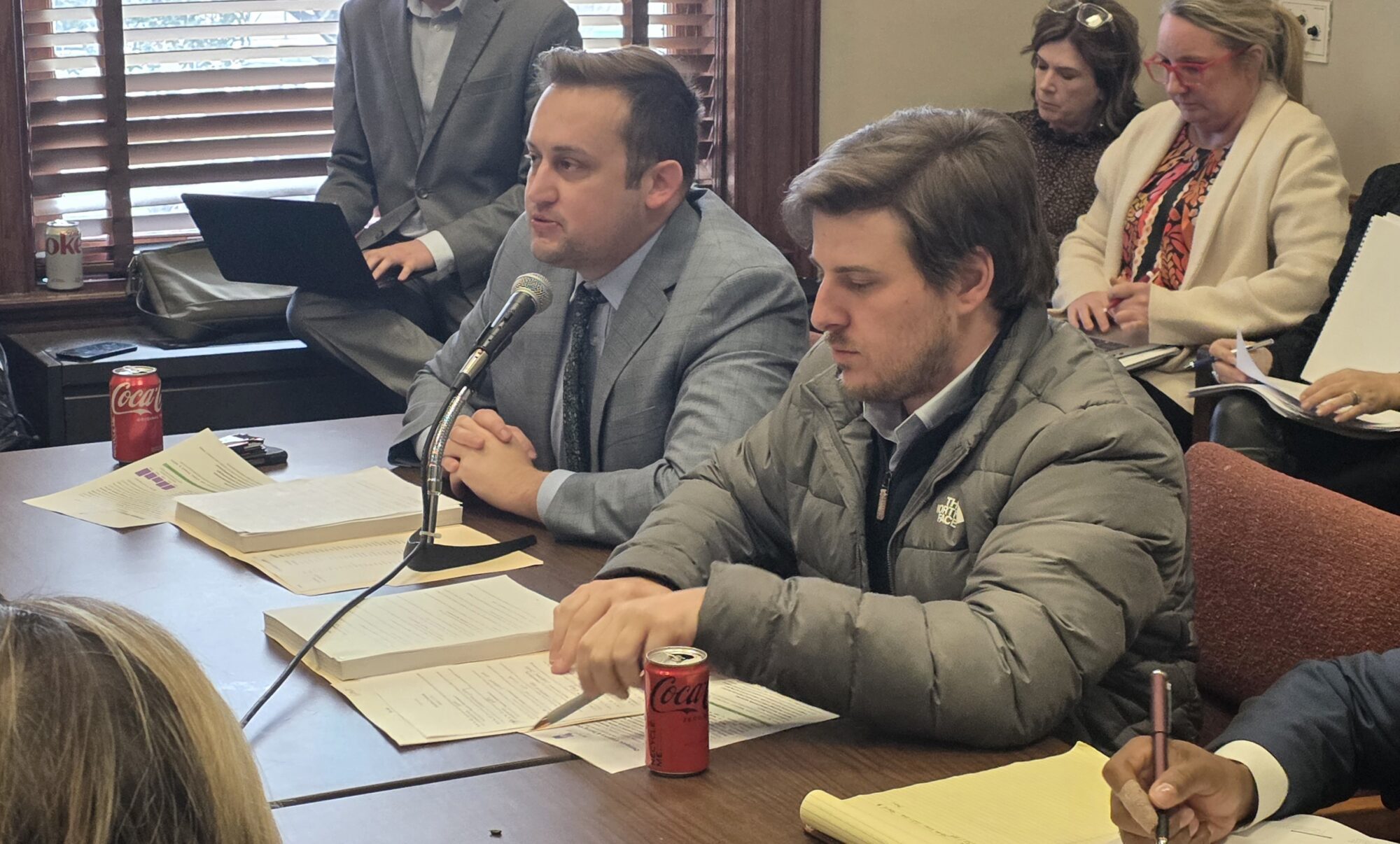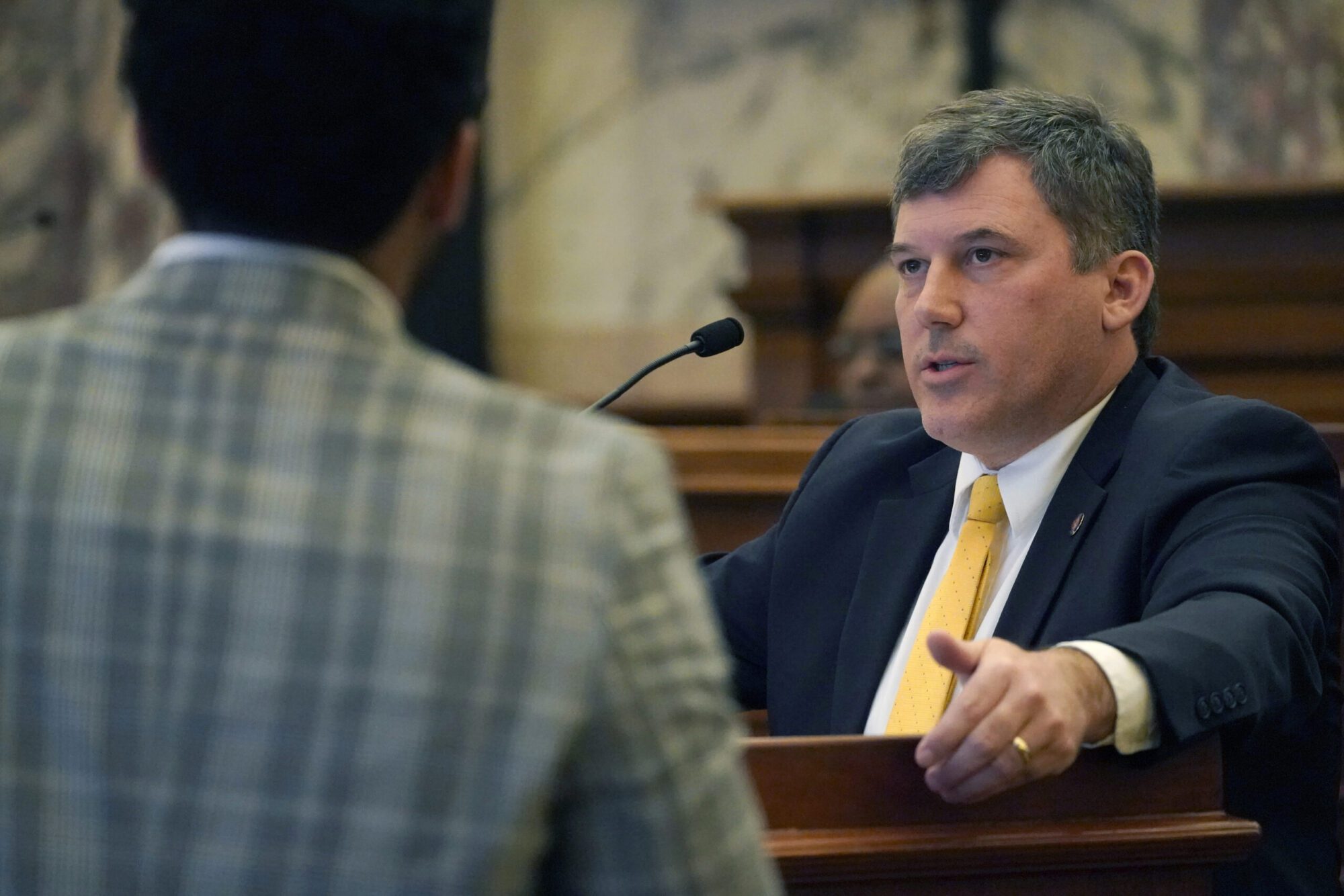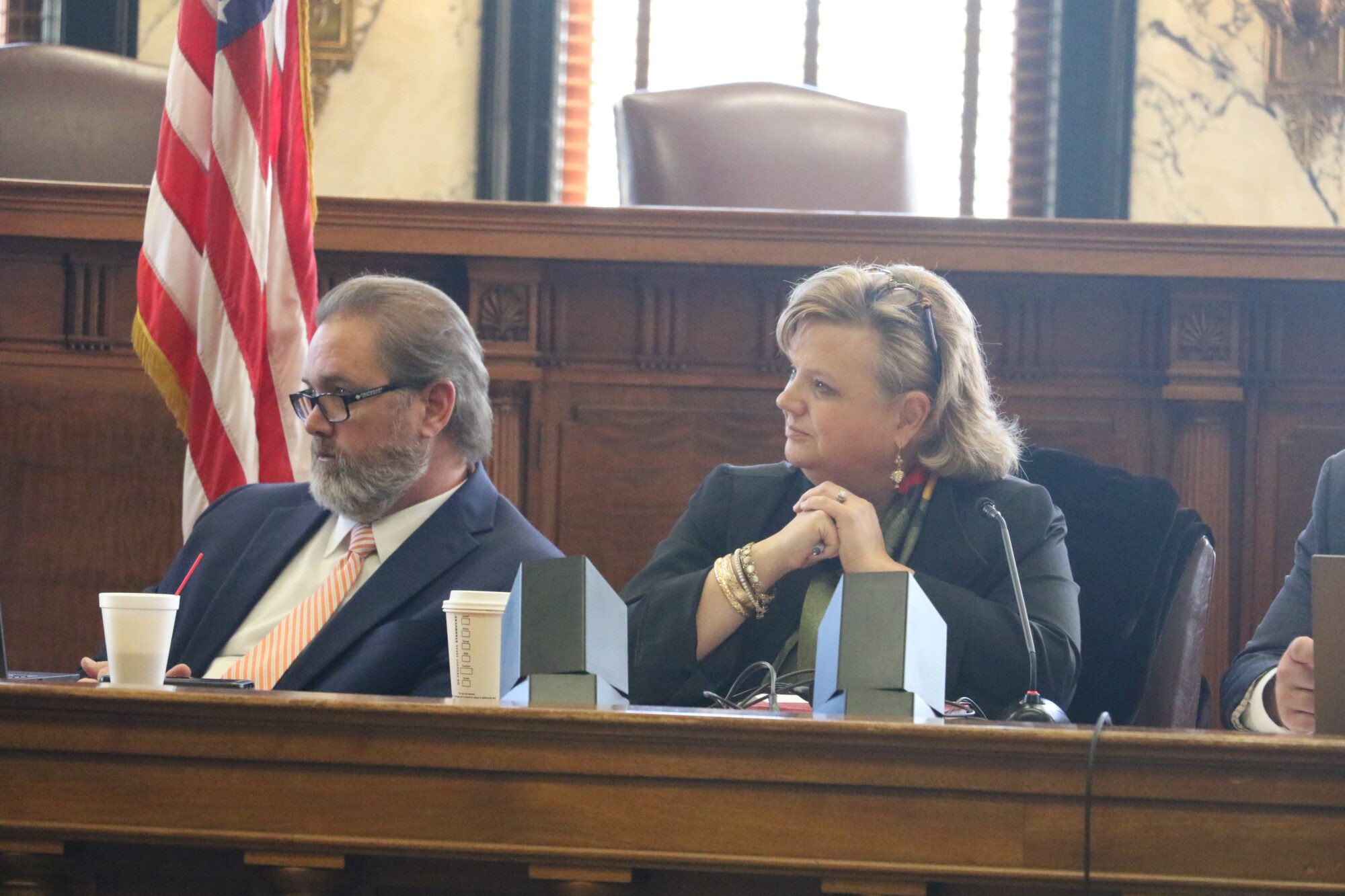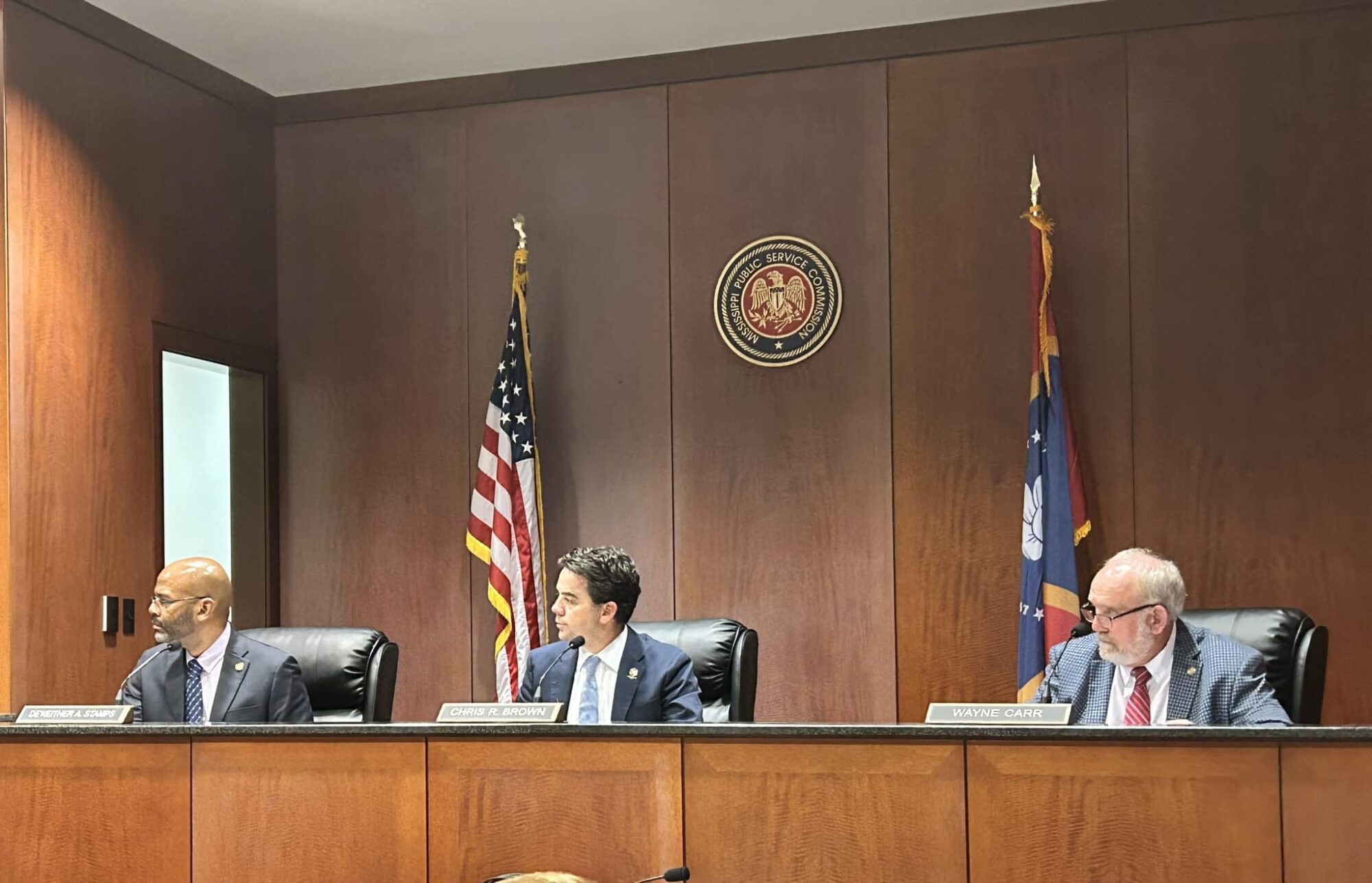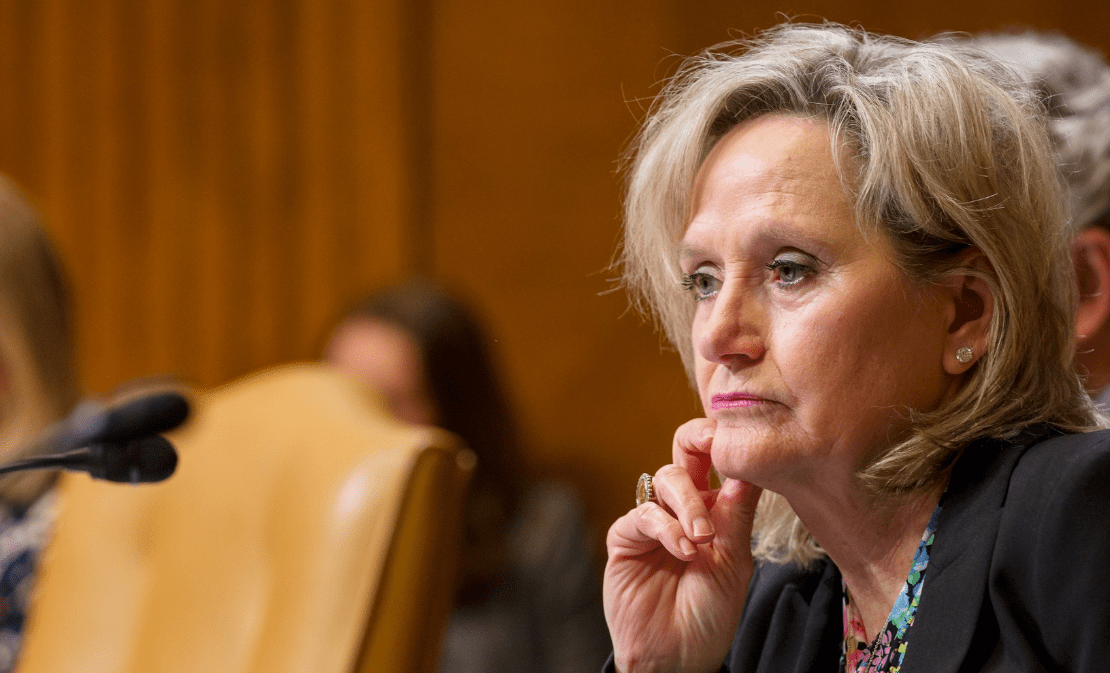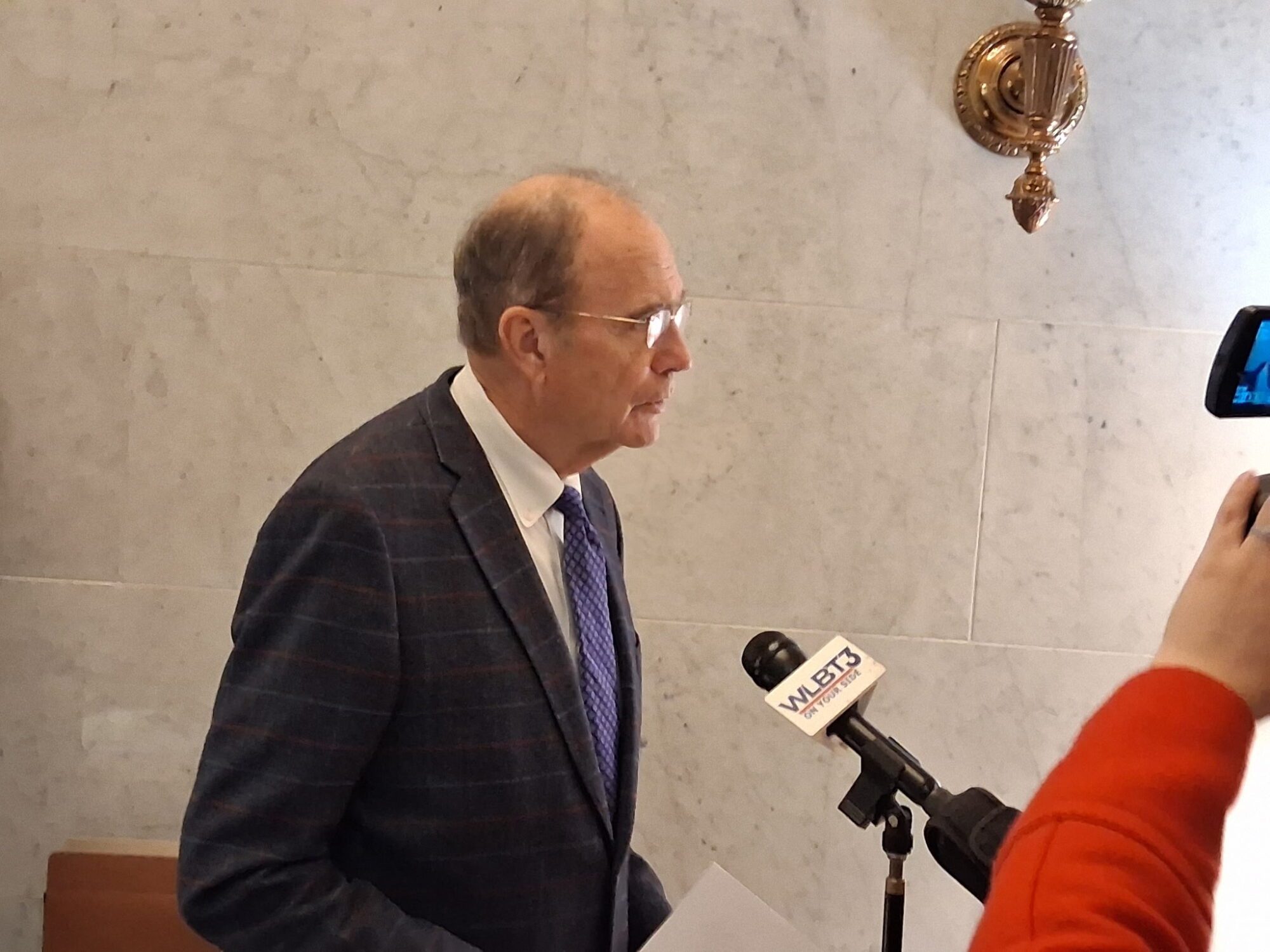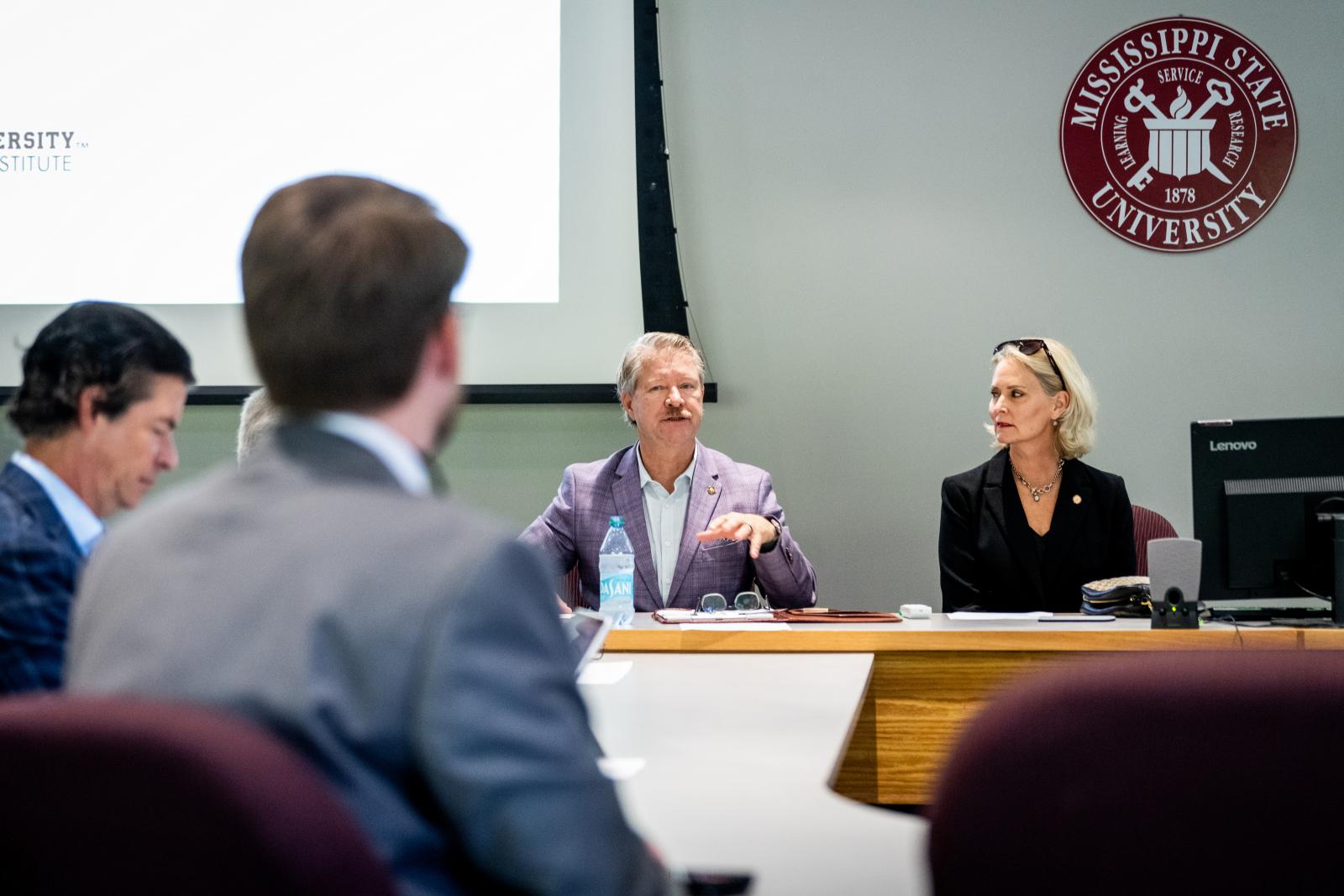
Chairs of the AI Legislative Task Force state Sen. Bart Williams of Starkville and state Rep. Jill Ford of Madison attend the meeting held at Mississippi State on Thursday [Sept. 25]. Task Force members also toured MSU’s leading research centers, highlighting the university’s work at the forefront of AI and other emerging technologies. (Photo by Grace Cockrell from MSU)
- Areas the legislative task force are considering include protecting intellectual property, data privacy, and children’s safety.
By the middle of December, the Artificial Intelligence Legislative Task Force expects to have legislative recommendations ready to help guide Mississippi’s policies on the burgeoning technology.
The 11-member task force has been touring the state meeting and listening to public and private stakeholders.
The group recently toured Mississippi State University to gain insight on how the institution supports the state’s goal of being a national and global technology and innovation leader.
“We are a tech destination,” State Senator Bart Williams (R) said.
Future stops, he said, included an October visit to Mississippi Gulf Coast Community College and two meetings at the Capitol in Jackson in November and December.
“We welcome public input,” Williams said. “We know good legislation comes when we seek public input.”
Areas the task force are considering include protecting intellectual property, data privacy, and children’s safety.
“We don’t want to be restrictive of the technology, but we want to protect the public’s safety,” said Williams.
The task force realizes it may need to place “guardrails” on AI development, hoping the industry will take up the challenge. However, Williams said, if not, legislators will step in.
During an interview with Magnolia Tribune on Monday, Williams mentioned Mississippi’s Walker Montgomery Protecting Children Online Act, a law aimed at the protection of minors from harmful material online. It was challenged by industry groups as a First Amendment violation, but in April, the Fifth Circuit of Appeals Court allowed the law to go into effect. The case is now before the U.S. Supreme Court.
As previously reported, the law was authored by State Rep. Jill Ford (R) in response to the tragic death of 16-year-old Walker Montgomery of Starkville after someone he met online asked for money. When Montgomery said no, the online predator threatened to release a sexually explicit video of him. After continued pressure by the predator, Montgomery took his own life in 2022.
Following an investigation which included assistance from the FBI, it was revealed that the individuals preying on the teen were overseas. Other instances of predatory activity on minors in the area have also been reported.
Legislation on AI is not “black or white,” Williams said, using the analogy of car safety. When the Model T roamed the rutted roads of America, there were no safety standards. Now, he said, there are hundreds of federal vehicle safety standards. Sometimes, Williams said, AI regulations are equal to “lassoing a cloud.”
For its part, Mississippi, which has three data centers lined up for construction, is betting heavily on AI. Lawmakers would like to establish governance structures, encourage AI development and partially fund projects involving private companies and workforce development.
During the task force’s visit to MSU, members toured key technology research facilities in Starkville. Williams explained why Mississippi economic development is seeing interest from other states.
“We’re on the radar throughout the nation thanks to the leadership of many in this room, and we want to continue to do that,” he said.
The task force saw MSU’s new data center facility with nearly triple the floor space to house state-of-the-art supercomputing infrastructure. The university also showed visitors its work on off-road autonomous vehicles as well as the Agriculture Autonomy Institute, which will aid farmers in decision-making through data-driven insights.
MSU Vice President for Research and Economic Development Julie Jordan is an ex-officio member of the AI Legislative Task Force. She said one limitation for AI development nationally and globally is the combination of power and space.
“But the state of Mississippi has invested in building that type of infrastructure right here at Mississippi State University, so we’re poised to move quickly on any needs the state has,” Jordan noted.
